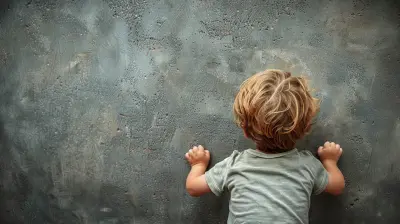Signs That Sibling Rivalry is Affecting Your Child’s Self-Esteem
7 August 2025
Okay, let’s get real for a second. If you’ve got more than one kid at home, chances are you’ve witnessed at least a few gladiator-style sibling showdowns. You know—who gets the last cookie, who got to choose the movie last time, who’s mom’s “favorite.” Normal, right? Totally. Sibling rivalry is as old as, well, siblings.
But what if that everyday bickering is doing more than just causing temporary chaos in your house? What if it’s chipping away at your child’s self-esteem like a squirrel gnawing on a bird feeder?
Let’s dig into the subtle (and not-so-subtle) signs that sibling rivalry might be messing with your child’s confidence—and what you can actually do about it.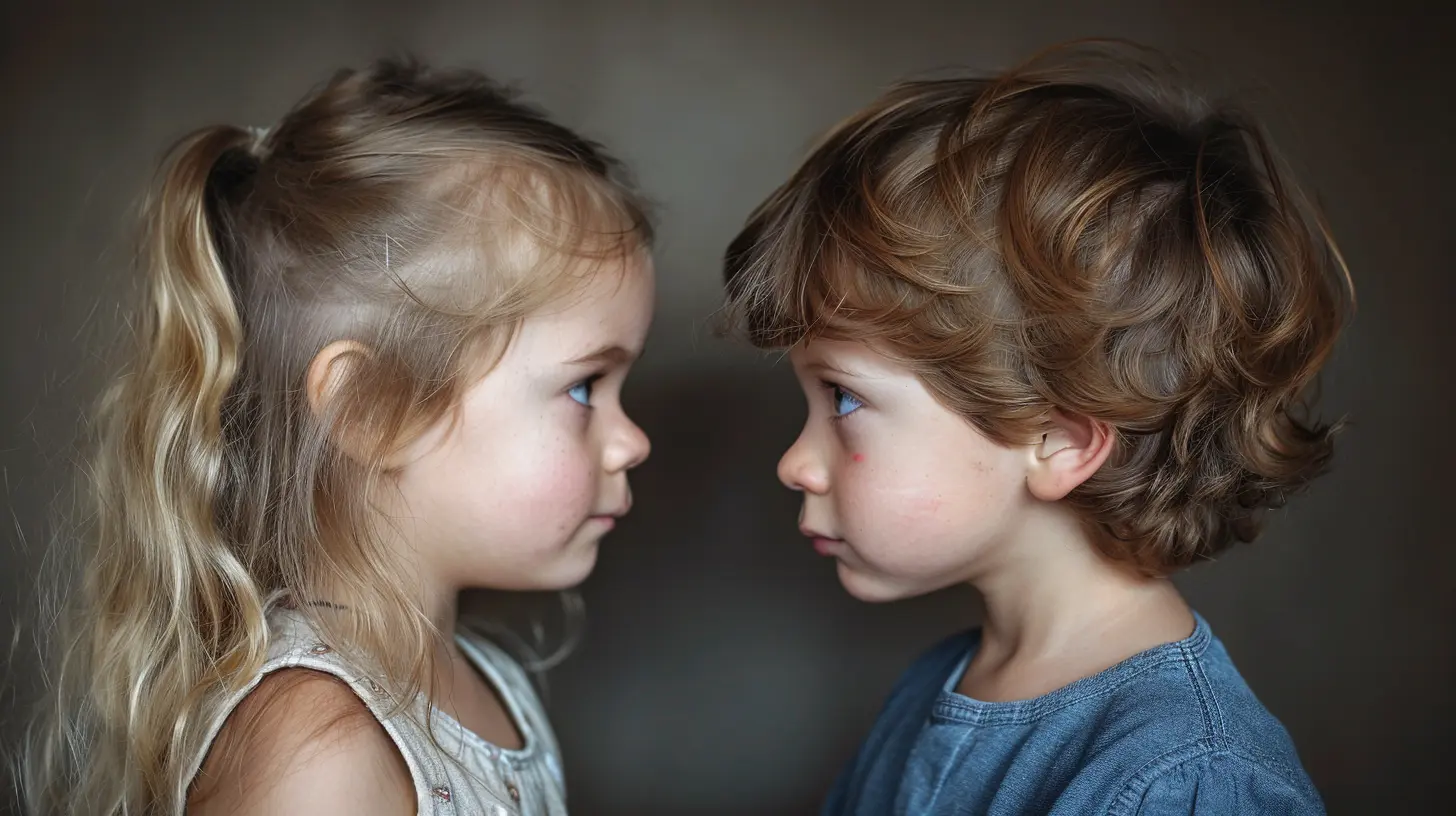
What Exactly Is Sibling Rivalry?
Picture a reality show where all the contestants are competing for the love and attention of the same person—you. That’s basically sibling rivalry in a nutshell. It’s that underlying competition between brothers and sisters, fueled by the need for approval, affection, and frankly, dominance.A little rivalry? Totally healthy. It builds conflict-resolution skills and helps kids learn boundaries. But when it’s constant or crosses the line into bullying, teasing, or exclusion? That’s where the self-esteem damage starts to sneak in.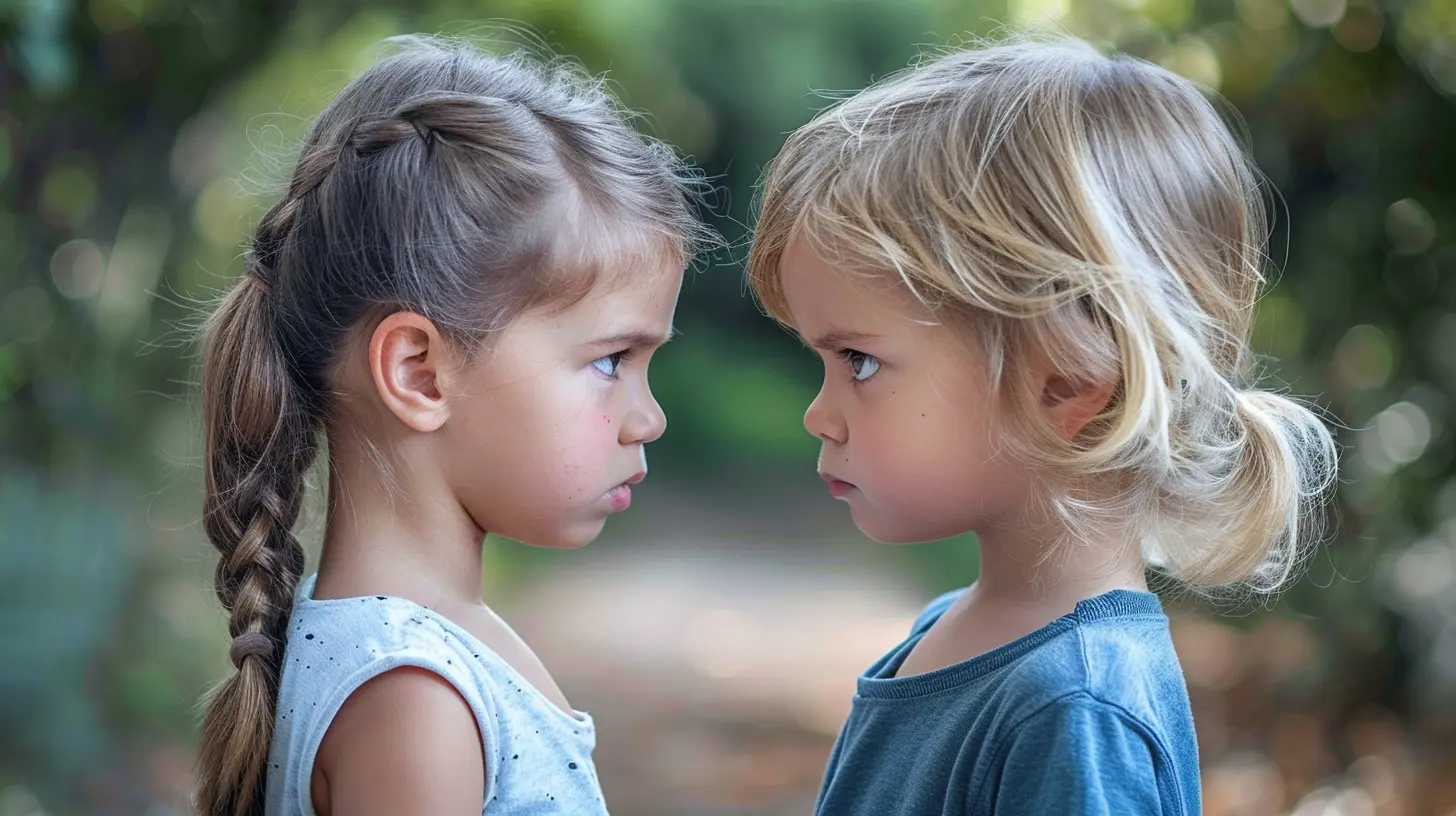
Self-Esteem: Why It Matters Big Time
Before we talk signs, let’s talk about why self-esteem even matters. Self-esteem is basically your child’s internal cheerleader. It tells them they’re capable, loved, and worthy—no matter what the world throws at them.When that cheerleader gets silenced (by toxic sibling dynamics, for example), your child might start doubting themselves, withdrawing socially, or even acting out.
So yeah, it matters. A lot.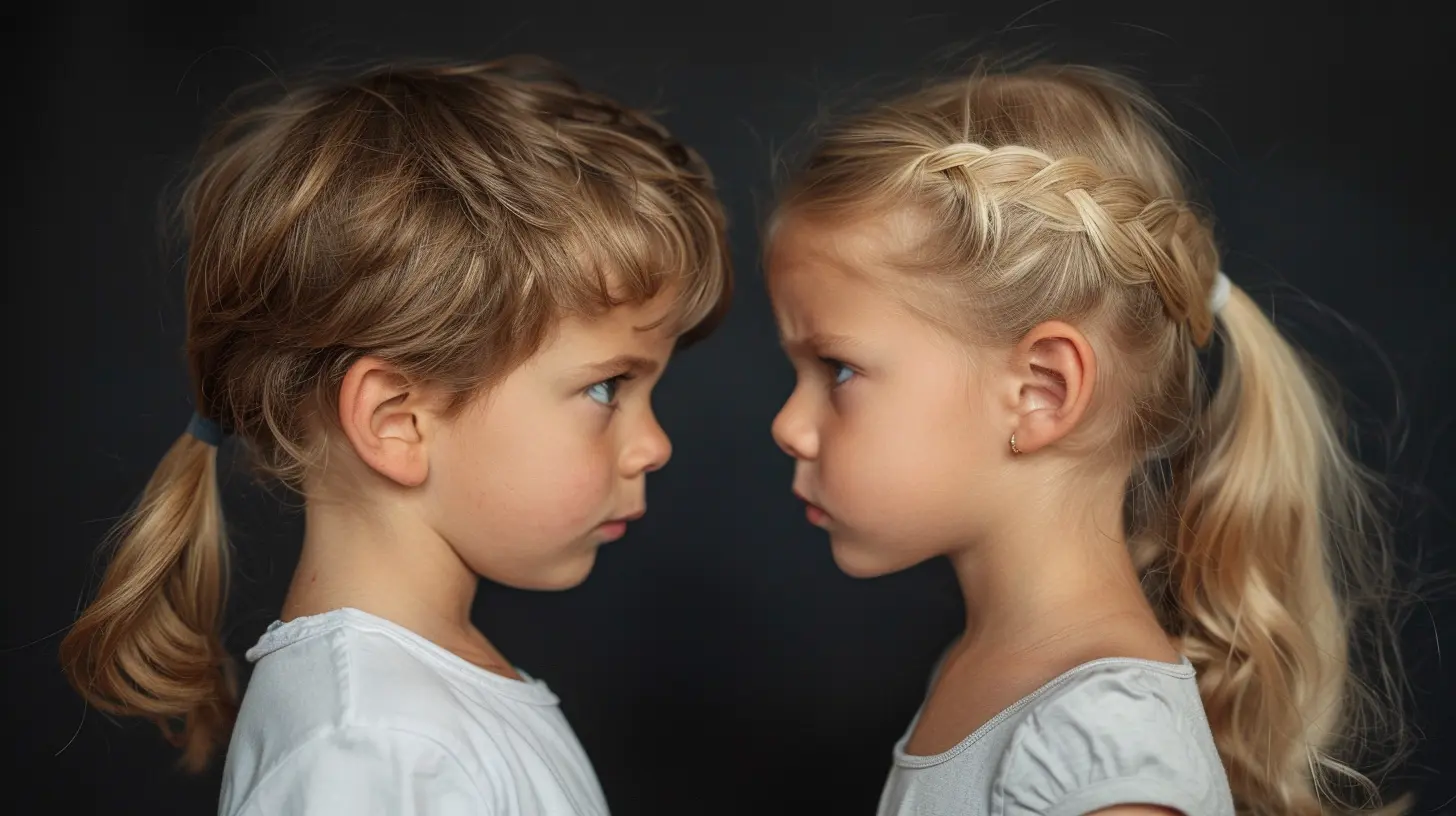
1. They Always Compare Themselves to Their Sibling
Ever hear your kid say something like, “Jason always gets better grades,” or “You like Emily more than me!” That’s a MAJOR red flag.Comparison is normal to a point. But if you’re hearing it constantly, it might mean your child’s self-worth is being measured by their sibling’s achievements—and spoiler alert: that’s a recipe for insecurity.
👉 What to Watch For:
- They downplay their own accomplishments
- They mimic their sibling’s interests just to gain approval
- They seem obsessed with “fairness”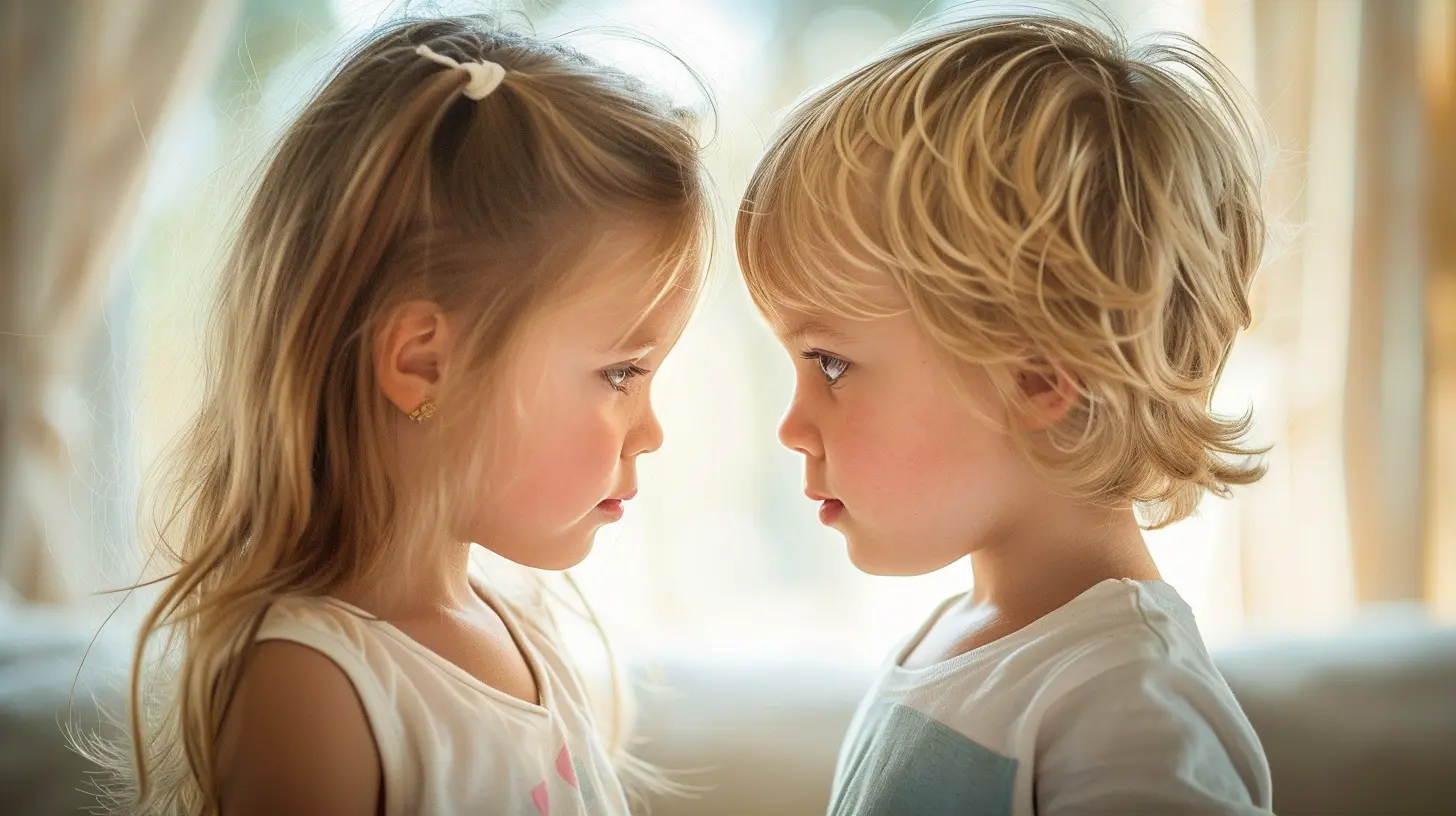
2. Your Child is Always Trying to Be “The Best”
Is your kid a perfectionist to the point where they melt down if they’re not number one? That could be a symptom of rivalry-induced self-esteem issues.Maybe they feel like the only way to stand out is to be flawless. That’s a heavy load to carry for anyone—let alone a 7-year-old.
👉 What to Watch For:
- Tears over tiny mistakes
- Refusal to try new things unless they’re sure they’ll excel
- Over-apologizing for minor screwups
It’s like they’re trying to win an invisible trophy no one else is even aware of.
3. They Withdraw from Family Activities
You plan a fun family game night, and one child suddenly decides Fortnite is more appealing. Or maybe your little one starts avoiding dinner table conversations altogether.Withdrawal can be a coping mechanism. If they constantly feel overshadowed or criticized by a sibling, pulling away seems safer. Out of sight, out of squabble.
👉 What to Watch For:
- Avoiding group play
- Skipping out on shared routines
- Spending excessive time alone in their room
This isn’t just a tween being moody—it could be them trying to escape a source of emotional stress.
4. They Start Acting Out to Get Attention
You know that saying, “Negative attention is better than no attention”? Yep, that plays out in families too. If one sibling is the golden child and the other starts...well, pushing buttons—it might be their way of yelling, “Hey! I matter too!”And let’s be honest—nothing says “notice me” like coloring the dog with a Sharpie.
👉 What to Watch For:
- Constant interrupting when you're spending time with their sibling
- Purposely provoking arguments
- Sudden changes in behavior at school or with friends
Their inner compass gets all out of whack when they feel like they’re always coming in second place.
5. The Quiet One Might Be Struggling the Most
We often think the loudest sibling is the one needing the most help—but don’t sleep on the quiet ones. The child who “never complains” might be internalizing every jab, every comparison, every tiny moment when their sibling stumbled into the spotlight.Not all wounds scream. Some just sit quietly and fester.
👉 What to Watch For:
- They let their sibling speak for them
- They give up easily during activities
- They show signs of anxiety or depression
If your little one shrinks themselves to make room for their sibling, it’s time to step in.
6. They Constantly Seek External Validation
“Did I do good, Mom?” “Was that okay, Dad?” If you hear these questions on repeat, it might mean your child’s internal sense of worth is shaky.And when sibling rivalry plays out like a non-stop game of who’s better at what, it kicks the need for outside approval into overdrive.
👉 What to Watch For:
- Overly needing praise
- Looking to others for decision-making
- Feeling crushed by criticism (even the gentle kind)
They measure their worth on the world’s scale because they’re not sure they measure up at home.
7. You’re Being Cast as the Referee—Constantly
When your child starts turning you into a full-time referee—“He took my game again!” “She won’t let me sit by you!” “You ALWAYS take his side!”—you know there’s a deeper issue brewing.Yes, siblings argue. But if you’re dealing with conflict 24/7 and one child always feels like they’re on the losing end, chances are their self-esteem is being bruised faster than a banana in a backpack.
👉 What to Watch For:
- Constant tattling
- A noticeable power imbalance between siblings
- One child repeatedly feeling like the “bad guy”
You’re not raising mini lawyers. You’re raising humans who need to feel safe and valued.
So, What Can You Actually Do About It?
Alright, so you’ve seen the signs and your inner parent alarm is officially going off. Now what? Here’s how to help your kiddo rebuild some of that shaken self-esteem like the rockstar parent you are.Give Each Child Their Own Spotlight
Every kid needs to feel like the main character sometimes. Whether it's one-on-one time, a special bedtime routine, or just asking them about their day first—make sure each child knows they matter in their own right.Avoid Comparisons Like the Plague
Even innocent comments like “Why can’t you be more like your sister?” hit harder than you think. Celebrate differences instead of stacking them up side by side like a game of emotional Jenga.Teach Conflict Resolution Skills
Kids aren’t born knowing how to say, “I feel hurt when you do that.” (Honestly, plenty of adults struggle with it, too.) Teach them how to express feelings without blame and how to listen without interrupting.Be the Emotional Equalizer
When you notice one child constantly dominating or overshadowing the other, step in. Kindly set boundaries and offer corrective guidance—without scolding or shaming.Watch Your Own Biases
We all have them, even if we hate to admit it. Maybe you bond better with one child because of shared interests or personalities. That’s okay—but make sure your love and support are equally distributed, if not equally expressed.Normalize Mistakes
Let your kids see you mess up and handle it with grace. When they stop fearing failure, they stop using their sibling’s success as a measuring stick.When to Seek Help
If the signs persist, get louder, or start affecting your child's daily life (like school performance, friendships, or sleep), it might be time to loop in a counselor or child therapist. There’s no shame in asking for help—just like there’s no gold medal for doing it all alone.Final Thoughts (Cue the Heartstrings)
Sibling rivalry doesn’t have to be a self-esteem death sentence. With a little guidance, a lot of love, and the occasional patience of a saint, you can help your kid feel like the rockstar they are—no matter who got to ride shotgun last.Remember: your job isn’t to squash all the sibling squabbles (good luck with that), but to make sure no one walks away from them feeling small.
Trust your gut, build them up, and keep the love louder than the rivalry.
all images in this post were generated using AI tools
Category:
Sibling RivalryAuthor:

Austin Wilcox
Discussion
rate this article
1 comments
Scarlett Warren
Interesting insights! How can parents effectively mitigate sibling rivalry to boost their children’s self-esteem?
August 27, 2025 at 2:51 AM

Austin Wilcox
Thank you! Parents can mitigate sibling rivalry by promoting teamwork, encouraging open communication, and celebrating each child's unique strengths. Setting aside individual quality time with each child also helps boost their self-esteem.
